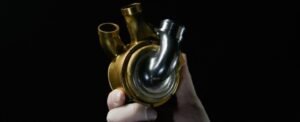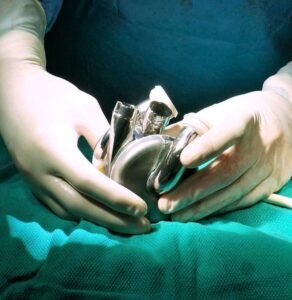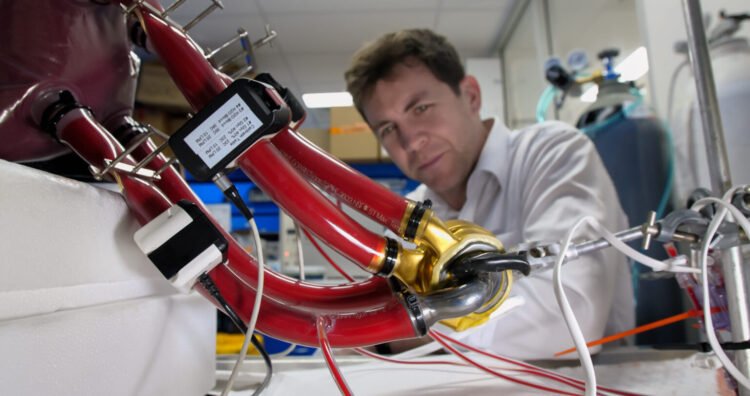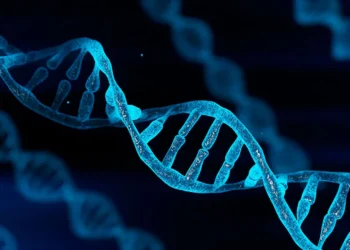In a groundbreaking medical achievement, an Australian man in his 40s became the first person in the world to be discharged from the hospital with a fully functioning artificial heart made of titanium.
For 105 days, a small, fist-sized titanium pump known as the BiVACOR Total Artificial Heart kept him alive, pushing blood through his body with the help of a magnetically levitating rotor. This innovative device replaced his failing heart while he waited for a human donor.
On March 6, when a suitable donor heart became available, surgeons at St. Vincent’s Hospital in Sydney successfully replaced the titanium heart with a real one.
Dr. Chris Hayward, the transplant cardiologist leading the team, described the achievement as “revolutionary,” explaining that without the artificial heart, the patient wouldn’t have survived long enough to receive a transplant.

A Life-Changing Invention
Before the procedure, the man could barely walk 10 to 15 meters without experiencing severe shortness of breath. Now, with a new heart beating in his chest, he’s able to do things he hadn’t done in years.
“This device is a complete game-changer,” said lead surgeon Paul Jansz, who admitted the moment gave him “goosebumps.”
The BiVACOR artificial heart, developed by Australian biomedical engineer Daniel Timms, took nearly 25 years to create. Inspired by his father’s heart attack in 2001, Timms began designing the device using his plumbing skills, building a system that mimics blood flow through pipes and valves.
How Does It Work?
Unlike other artificial hearts that rely on fragile membranes and valves, BiVACOR’s heart is built from durable titanium and has only one moving part: a magnetic rotor that levitates between two chambers. Because it doesn’t touch any surfaces, there’s no friction, meaning the device can potentially last for years without wearing out.
The heart is powered by an external battery that connects to the device through a small cable exiting the patient’s abdomen.

A New Era for Heart Transplants
With only around 6,000 heart transplants performed globally each year, and millions of people suffering from severe heart failure, the BiVACOR heart offers new hope for patients who cannot wait for a donor.
“This technology will transform the future of heart transplants,” said Dr. Hayward. “Within the next decade, artificial hearts could become the standard option for patients without access to a donor organ.”
The BiVACOR heart is currently undergoing clinical trials, with four more implants planned in Australia this year. If successful, the device could soon receive approval for wider use worldwide.
For Daniel Timms, seeing his invention save lives is a dream come true.
“This has been my life’s mission,” Timms said. “And this is just the beginning.”

 English
English



























































